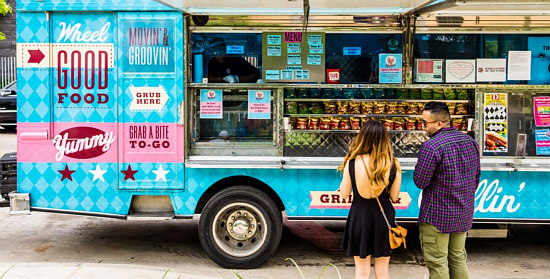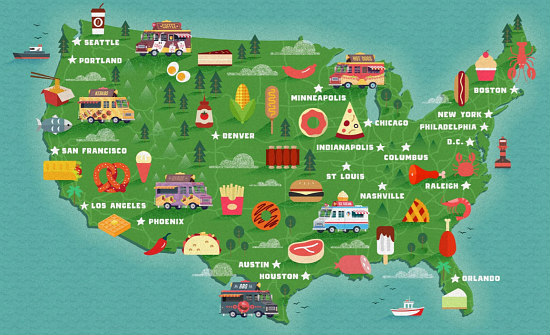What's Hot: Did January Mark The Bottom For The DC-Area Housing Market? | The Roller Coaster Development Scene In Tenleytown and AU Park
 What $32,000 Buys: The First Year of a Food Truck in DC
What $32,000 Buys: The First Year of a Food Truck in DC
✉️ Want to forward this article? Click here.

Years ago, food trucks became such a trendy dining option in the District that the city rushed to implement a regulatory framework to restore balance on the restaurant scene.
More recently, a resurgent dining scene and increased competition has shifted the tide so much that food trucks are losing business. Now, a nationwide report asserts that DC has the second most inhospitable environment for food trucks to thrive.

Commissioned by the US Chamber of Commerce Foundation, the Food Truck Nation report calculates that nationwide, the first year to start and maintain a food truck requires 45 separate procedures and costs $28,276 for permits, licenses and compliance costs, on average. Over 300 cities have a food truck industry, and from 2011 to 2016, the industry grew by 7.9 percent annually; going forward, it is projected to grow by 0.4 percent annually through 2020.
Out of the 20 cities with the highest density of food trucks, DC ranked second to last in terms of what is required to obtain permits and licenses, remain in compliance, and be in operation.
In order to obtain licensing, would-be food truck operators in DC have to go through 28 procedures that require 23 trips to regulatory agencies at a cost of $2,720. For perspective, only three of the other 20 cities have higher start-up costs.
story continues below
loading...story continues above
DC has 22 restrictions on food trucks related to things such as proximity and number of required check-ins with regulators, tying the city with Minneapolis as the most restrictive. There are also 16 operating procedures in DC, necessitating 32 trips to government agencies and other entities, with fees totalling $29,382. Only five of the top 20 cities have higher operating fees.
Food truck operators in DC were surveyed and shared some of the more seemingly random or burdensome regulations, from a comparatively short maximum truck length of 18.5 feet to the additional inspections and rules associated with meatless burritos. Local operators also have difficulties getting multiple vending spots for "Mobile Roadway Vehicles" via the monthly lottery and have to provide each worker with a vendor badge, each with its own associated application process and fees.
With fees like these (and an increasingly attractive dining scene), it's no wonder that more food truck operators in the area are exploring other options.
See other articles related to: food trucks
This article originally published at https://dc.urbanturf.com/articles/blog/what-32000-buys-the-first-year-of-a-food-truck/13733.
Most Popular... This Week • Last 30 Days • Ever

As mortgage rates have more than doubled from their historic lows over the last coupl... read »

The small handful of projects in the pipeline are either moving full steam ahead, get... read »

The longtime political strategist and pollster who has advised everyone from Presiden... read »

Lincoln-Westmoreland Housing is moving forward with plans to replace an aging Shaw af... read »

A report out today finds early signs that the spring could be a busy market.... read »
DC Real Estate Guides
Short guides to navigating the DC-area real estate market
We've collected all our helpful guides for buying, selling and renting in and around Washington, DC in one place. Start browsing below!
First-Timer Primers
Intro guides for first-time home buyers
Unique Spaces
Awesome and unusual real estate from across the DC Metro














